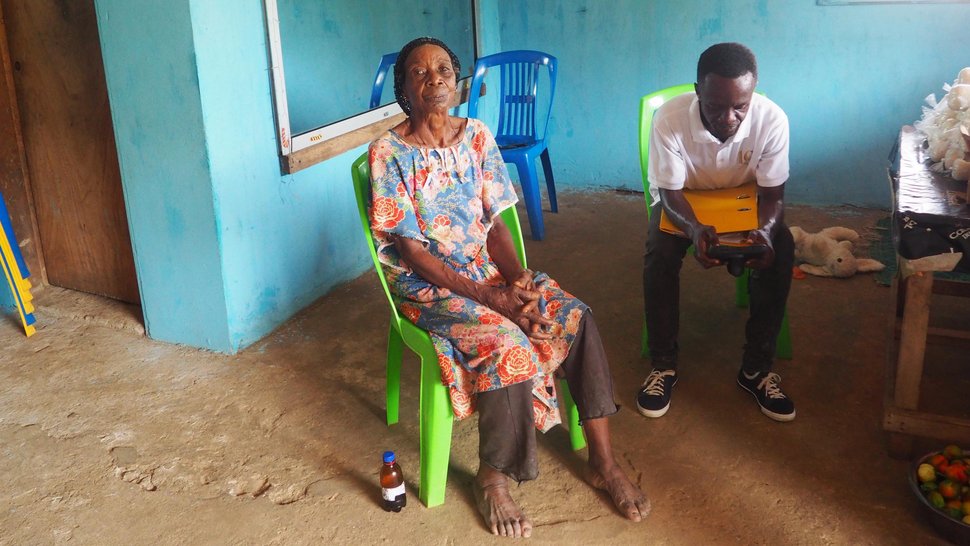Significantly more snakebite envenomings in Gabon than previously known
In Gabon, significantly more people are bitten by venomous snakes each year than previously thought. This is one of the findings of a study conducted by the Bernhard Nocht Institute for Tropical Medicine (BNITM) in collaboration with the Centre de Recherches Médicales de Lambaréné (CERMEL). The researchers have published comprehensive data on the prevalence and treatment of snakebites in Gabon for the first time. As a result, they call for more education, more training for medical personnel, and a more reliable supply of antivenom. The study was published in the Journal of Global Health.

Snakebite envenoming is one of the 21 neglected tropical diseases (NTDs) listed by the World Health Organization. According to WHO estimates, more than 100,000 people worldwide die each year from these diseases, and over 400,000 suffer permanent damage. However, reliable epidemiological data have been lacking in Gabon, where numerous highly venomous snake species occur.
For the study, the researchers conducted a comprehensive household survey in the Ogooué et des Lacs department. It covered urban, rural, and hard-to-reach areas. The team also analyzed patient data from 28 health facilities, recording the frequency, circumstances, and consequences of snakebites. The study also included information on how victims treated themselves and how and where they sought help. The team also determined the availability of antivenom and how treatment facilities handled it.
The results show that approximately 246 out of 100,000 people in the Ogooué et des Lacs department suffer a snakebite each year; almost one in five bites results in moderate to severe envenoming. About three percent of those affected die as a result. About 55 percent of those bitten initially sought medical attention at a hospital or clinic, and 22 percent first consulted traditional healers. While a large proportion of patients in health centers received antivenom, this was often independent of the actual severity of the envenoming. At the same time, professional treatment, such as the correct antivenom dosage or the avoidance of unnecessary additional medications, was often lacking. The study also highlights high treatment costs, which place a heavy burden on those affected and make it difficult to access formal health services. Furthermore, the study showed that snakebites have a significant impact on livestock: one in six households reported the death of livestock, which represents a further economic burden.
"Our study demonstrates that snakebite envenoming plays a significantly greater role in public health in Gabon than previously assumed," says lead author Rica Artus from the Research Group Neglected Diseases and Envenoming at BNITM lead by Dr Benno Kreuels. "Many deaths and subsequent injuries could be prevented through better prevention, targeted education, improved transportation options, and strengthened medical care." It is necessary to inform the population about effective prevention and first aid measures, train medical personnel, and ensure that health facilities are reliably supplied with antivenom.

The researchers therefore call for comprehensive measures: training of medical personnel, development of national treatment guidelines, improved access to affordable and effective antivenin, and collaborations with traditional healers. The results of the study have already contributed to the inclusion of snakebite envenomation for the first time in Gabon's National Health Development Plan (2024–2028).
Original publication
Artus, Rica et al.: The epidemiology of snakebites, treatment-seeking behaviour, and snakebite management in the department of Ogooué et des Lacs, Gabon, Central Africa: a cross-sectional community and health facility-based survey. Journal of Global Health 2025;15:04062.
Contact person
Dr Benno Kreuels
Research Group Leader
Phone : +49 40 285380-723
Fax : +49 40 285380-512
Email : kreuels@bnitm.de
Julia Rauner
Public Relations
Phone : +49 40 285380-264
Email : presse@bnitm.de
Further information






